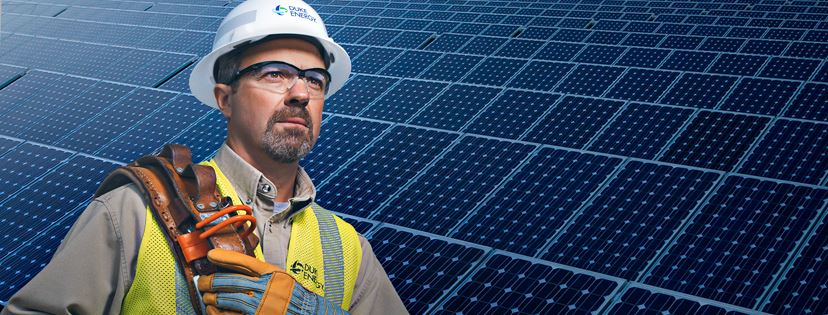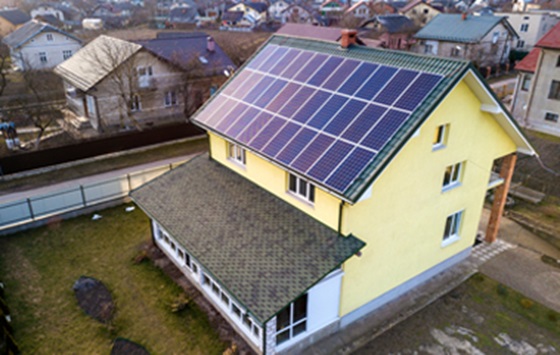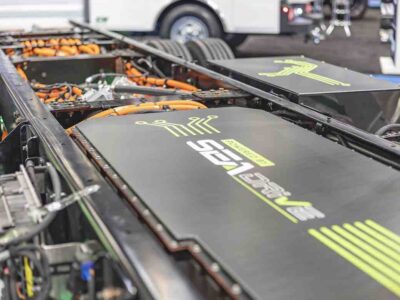Several thousand North Carolina households who get power from Duke Energy will soon receive financial incentives to add rooftop solar and battery storage to their homes. The incentives were unveiled in January after the North Carolina Utilities Commission (NCUC) approved Duke Energy’s PowerPair program, which aims to provide clean energy sources to more homes.
The incentives are available to Duke Energy customers who agree to help provide data to the Charlotte-based company about their energy usage and cost savings, WSOC-TV reported. The incentive offers $0.36 per watt for solar panels up to a maximum capacity of 10 kilowatts and $400 per kilowatt-hour for battery storage, limited to a maximum capacity of 13.5 kWh.

Photo Courtesy Duke Energy
The NCUC estimates that the incentives would cover 13% of solar and battery installation costs, according to WSOC-TV. Federal incentives from the Inflation Reduction Act could cover an additional 30% in tax credits.
The PowerPair program stems from a settlement that revised how Duke Energy structures net metering for residential rooftop solar following changes to state law, according to a Jan. 18 press release from the Southern Environmental Law Center (SELC). The SELC represented the Southern Alliance for Clean Energy and Vote Solar in the settlement.

Photo Courtesy Duke Energy
Following the settlement, those organizations teamed up with other clean energy advocates to help Duke Energy design the program. Through the PowerPair pilot, 6,000 households across North Carolina can recoup up to $3,600 for solar energy and $5,400 for battery storage when installing the technologies together, the SELC stated.
Duke Energy will collect and publish data from the pilot, including how the new clean energy investments save energy, reduce stress on the grid during peak energy usage times, and help meet North Carolina’s carbon reduction goals.
“The PowerPair pilot, one of the first of its kind, opens up access to cost-cutting, clean energy resources for people across our state,” David Neal, SELC senior attorney, said in a statement.
“Importantly, it also opens the door for Duke to meet customer demand for electricity more cost-effectively. PowerPair is the first step towards more efficiently using connected devices in the home, like water heaters and electric vehicle chargers, to avoid expensive peak demands and match low-cost renewable energy with customer needs.”
The pilot program is scheduled to launch in May, WSOC-TV reported. A limited number of participants will be accepted each year and split into two cohorts based on different net-metering rules. Customers will also be allowed to sell power to Duke Energy’s grid.
According to a Jan. 29 article by Utility Dive, Duke Energy has seen potential in the distributed power plant model (aka virtual power plants) for “some time.” The upcoming pilot in North Carolina could accelerate the pace of adoption — and not just at Duke Energy, either.

Photo Courtesy Duke Energy
Lon Huber, senior vice president of pricing and customer solutions at Duke Energy, told Utility Dive that the pilot project will help his company collect the information it needs regarding customer adoption and residential battery performances. The long-term goal is to launch a bigger program for more customers in more states.
The project is scheduled to run for a decade, though that timeline could be extended before the official end.
“This will be a great information-gathering exercise for us energy nerds because, really looking forward, this is how solar energy scales,” Huber said. “Solar can’t scale by itself, and energy storage can unlock far more penetration of solar energy.”
Meanwhile, the settlement could open up more solar projects for other utilities, according to the SELC’s Neal.
“We think these are really just the first baby steps in what can be a real transformation in how the utility does business,” Neal told Utility Dive, “and we are excited to work with Duke and the public utilities commission to make that kind of virtual power plant a reality in North Carolina.”





